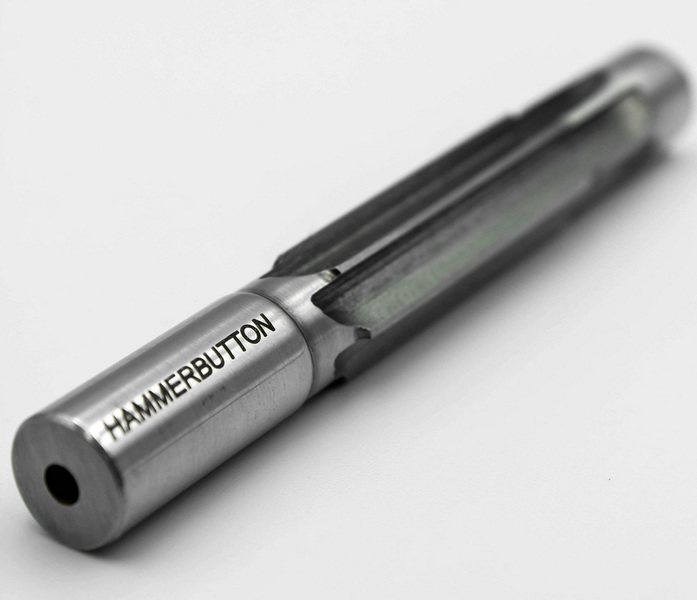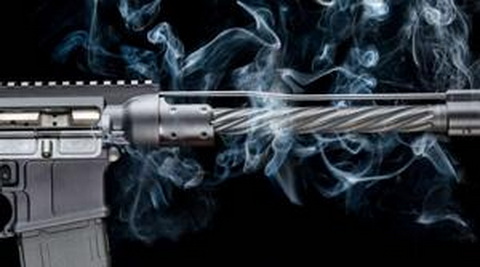Content Menu
● Introduction
● What Are Carbide Rifling Buttons?
>> How Do Carbide Rifling Buttons Work?
>> Advantages of Using Carbide Rifling Buttons
● How Carbide Rifling Buttons Impact Accuracy
>> Improved Stability
>> Consistent Bullet Trajectories
>> Reduced Barrel Fouling
● Practical Applications of Carbide Rifling Buttons
>> Case Studies
● Conclusion
● Frequently Asked Questions (FAQs)
>> 1. What materials are carbide rifling buttons made from?
>> 2. How does button rifling compare to cut rifling?
>> 3. Can all calibers be button-rifled?
>> 4. How often should I clean my barrel if it has been button-rifled?
>> 5. Are there any downsides to using carbide rifling buttons?
Introduction
In the world of firearms, precision and accuracy are paramount. One of the key components that contribute to a rifle's performance is its barrel, particularly how it is rifled. Among various rifling methods, carbide rifling buttons have gained significant attention for their ability to enhance accuracy. This article delves into the mechanics of carbide rifling buttons, their advantages, and how they can improve your rifle's accuracy.

What Are Carbide Rifling Buttons?
Carbide rifling buttons are specialized tools made from tungsten carbide, a material known for its hardness and durability. These buttons are used in the button rifling process to create the spiral grooves inside a rifle barrel. The unique properties of carbide allow these buttons to withstand the high pressures and friction involved in the rifling process, ensuring consistent results.
How Do Carbide Rifling Buttons Work?
The process begins with a solid steel barrel blank. The carbide button is either pushed or pulled through the barrel, displacing metal to form the grooves that impart spin to the bullet. This spin stabilizes the bullet during flight, significantly improving accuracy.
1. Preparation: The barrel is drilled and reamed to a specific diameter.
2. Buttoning: The carbide button is drawn through the bore, creating grooves in a single pass.
3. Finishing: The smooth finish left by the button reduces fouling and enhances cleaning.
Advantages of Using Carbide Rifling Buttons
1. Precision and Consistency: The use of carbide ensures that each groove is identical in depth and shape, leading to uniformity that translates directly into improved accuracy.
2. Smoother Bore Surface: Unlike traditional methods that cut grooves, button rifling compresses metal, resulting in a smoother bore surface that reduces fouling.
3. Enhanced Barrel Life: The cold-forming process strengthens the barrel's structure, increasing its resistance to wear.
4. Cost-Effectiveness: The efficiency of button rifling allows for mass production without sacrificing quality.
How Carbide Rifling Buttons Impact Accuracy
Improved Stability
The primary function of rifling is to stabilize the bullet as it travels down the barrel and into flight. A well-rifled barrel ensures that bullets exit with consistent spin rates, which is essential for predictable trajectories. Carbide rifling buttons achieve this by creating precise grooves that enhance stability.
Consistent Bullet Trajectories
With uniform grooves created by carbide buttons, shooters can expect more consistent bullet trajectories. This consistency is crucial for competitive shooting where even minor deviations can affect performance.
Reduced Barrel Fouling
The smoother surface produced by carbide rifling buttons minimizes fouling from gunpowder residues and lead deposits. This means less frequent cleaning is required, allowing shooters to maintain accuracy over extended periods without interruptions.

Practical Applications of Carbide Rifling Buttons
Carbide rifling buttons are widely used in various types of firearms, including:
- Precision rifles: Where accuracy is critical.
- Hunting rifles: For improved performance at varying distances.
- Competition firearms: Where every shot counts.
Case Studies
Several manufacturers have reported significant improvements in accuracy after switching to carbide rifling buttons. For instance, benchrest shooters have noted that their groups tightened considerably when using barrels produced with this method.
Conclusion
Carbide rifling buttons represent a significant advancement in the manufacturing of rifle barrels. Their ability to create precise grooves leads to improved bullet stability, reduced fouling, and overall enhanced accuracy. Whether you are a competitive shooter or a hunting enthusiast, investing in a rifle with a barrel rifled using carbide buttons can make a noticeable difference in your shooting experience.

Frequently Asked Questions (FAQs)
1. What materials are carbide rifling buttons made from?
Carbide rifling buttons are primarily made from tungsten carbide due to its exceptional hardness and durability.
2. How does button rifling compare to cut rifling?
Button rifling generally produces smoother bores and more consistent groove dimensions than cut rifling, making it preferable for many manufacturers focused on precision.
3. Can all calibers be button-rifled?
Yes, carbide rifling buttons can be used for a wide range of calibers, making them versatile for various firearm types.
4. How often should I clean my barrel if it has been button-rifled?
While button-rifled barrels tend to foul less due to their smooth surfaces, regular cleaning after extensive shooting sessions is still recommended for optimal performance.
5. Are there any downsides to using carbide rifling buttons?
The main downside is that high-quality button-rifled barrels often require stress relief after manufacturing to prevent deformation during firing.
















